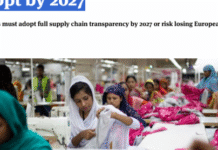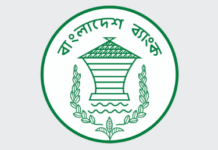Bangladesh has fared poorly, ranking 148th among 157 nations on a new index spotlighting government policies to reduce income disparity between the rich and the poor.
Singapore, one of the wealthiest nations in the region, bottomed out — falling behind Bangladesh — on the Commitment to Reducing Inequality (CRI) Index 2018 released on Tuesday.
The index prepared by the Development Finance International and Oxfam ranks nations on the basis of their welfare spending, the progressive nature of their tax system and prevailing wage inequality in the labour market.
Singapore came in the bottom 10, partly because of practices which facilitate tax dodging, Oxfam said. This ranking is, in large part, due in part to a new indicator on the extent to which a country’s policies enable corporate tax dodging. It also has no minimum wage to its workers, except for cleaners and security guards.
Denmark led the index while Nigeria remained the worst performer.
In South Asia, Bangladesh is the worst performer in reducing inequality after Bhutan (152nd), compared to other neighbours: India (147th), Nepal (139th), Pakistan (137th) and Sri Lanka (102nd).
Welfare spending is measured by expenditure on health, education and social protection. In a progressive tax system, the tax burden on corporations and individuals goes up progressively as per income levels, with the idea of taxing assesses based on their ability to pay.
In terms of its ranking across specific pillars this year, Bangladesh was placed in the 151st position on the index for public spending for healthcare, education and social protection, 148th for labour rights and wages and 103rd on taxation policies.
The report highlights that gender-sensitive taxation is not sufficiently addressed, resulting in women and girls being unfairly taxed and in need of better-funded essential public services.
“An interesting policy undertaken by Bangladesh is the establishment of a lower threshold for exemption on income taxation for women, taking into account the wage gap and the high rate of informal labour in the country,” Oxfam said.
In terms of labour practices, Bangladesh is regionally at the bottom as it scored 0.067 to rank 8th in labour rank, followed by Bhutan (7th), India (6th), Nepal (5th), Pakistan (4th), Afghanistan (3rd), Sri Lanka (2nd) and Maldives (1st).
Countries such as South Korea, Namibia and Uruguay are taking steps to reduce inequality, according to the report. Countries such as Bangladesh, Nigeria, Uzbekistan, Haiti, Chad, Sierra Leone, Bhutan and India did very badly.
Among rich countries, the United States showed a lack of commitment to cutting the inequality gap.
Among the emerging countries, China ranked 81st on the list, Brazil 39th and Russia 50th. Other nations in the top ten are Germany (2nd), Finland (3rd), Austria (4th), Norway (5th), Belgium (6th) Sweden (7th), France (8th), Iceland (9th) and Luxembourg (10th).
The report noted that inequality slows economic growth, undermines the fight against poverty and increase social tensions.
Source: BDnews24.










